In Japan, noodles like ramen, soba, and udon are meant to be slurped.
Far from rude, the sound expresses both appreciation and skill.
Unlike pasta, which is eaten quietly with a fork, Japanese noodles are enjoyed with rhythm and flow.
How to Slurp Beautifully
Draw in air as you slurp — it lifts the aroma into your nose.
This is why soba’s fragrance is best appreciated through sound.
Take noodles quickly, before they stretch — hesitation is the enemy of flavor.
Slurp with light rhythm, not loudness.
The goal isn’t to make noise, but to create a natural, airy sound.
The Spirit of “Iki” (粋)
To be iki means to be effortless, stylish, and composed — never excessive.
Slurping beautifully embodies this spirit:
not too loud, not too quiet, just natural and alive.
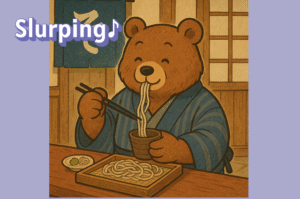
Noodles and Culture
Western etiquette values silence and control.
Japanese etiquette values flow and authenticity.
Through sound, eating becomes an art — a celebration of impermanence and sensory harmony.
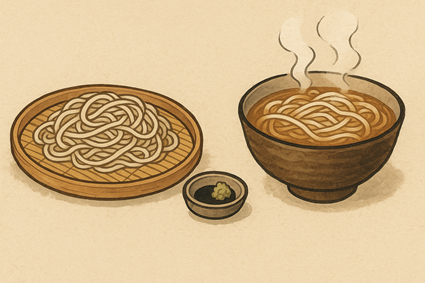
What Sounds Do Japanese Noodles Make?
In Japan, every kind of noodle has its own sound.
The language itself captures these eating rhythms through onomatopoeia —
playful sound words that describe not just what you hear, but what you feel.
Zuru zuru (ずるずる)
Often for ramen or soba
Continuous slurping
Sound-based sound

Zuzu! (すずっ!)
Often for ramen or soba
A short, sharp slurp
Sound-based sound
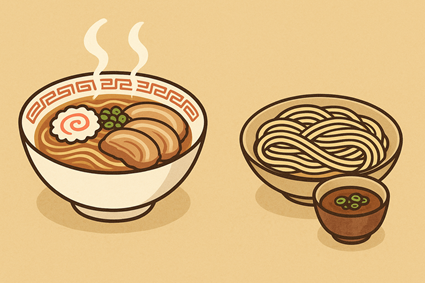

Churu churu (ちゅるちゅる)
Often used when children eat noodles
A lighter, cuter sound
Sound-based sound
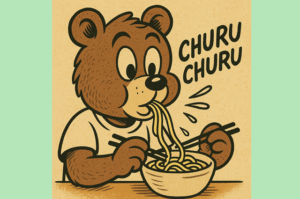
Tsuru tsuru (つるつる)
Especially for udon
Smooth, slippery sound
Texture-based sound
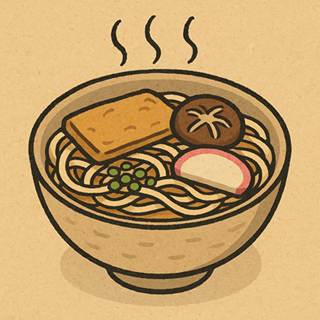
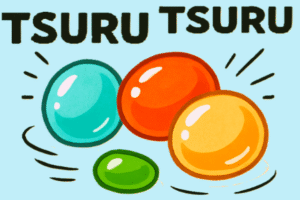
Mochi Mochi (もちもち)
Often for ramen or udon
Bouncy, soft-chewy sound
Texture-based sound
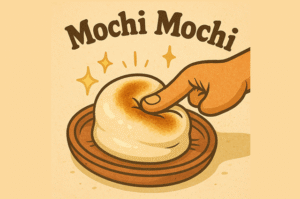
Shiko Shiko (しこしこ)
Often for ramen, udon, and soba
Firm, springy sound with resistance when you bite
Texture-based sound

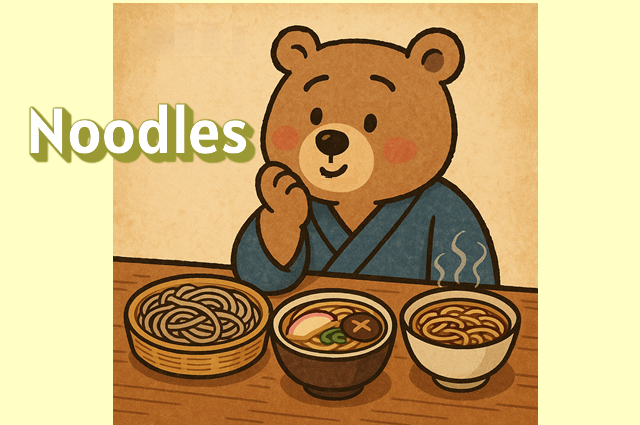
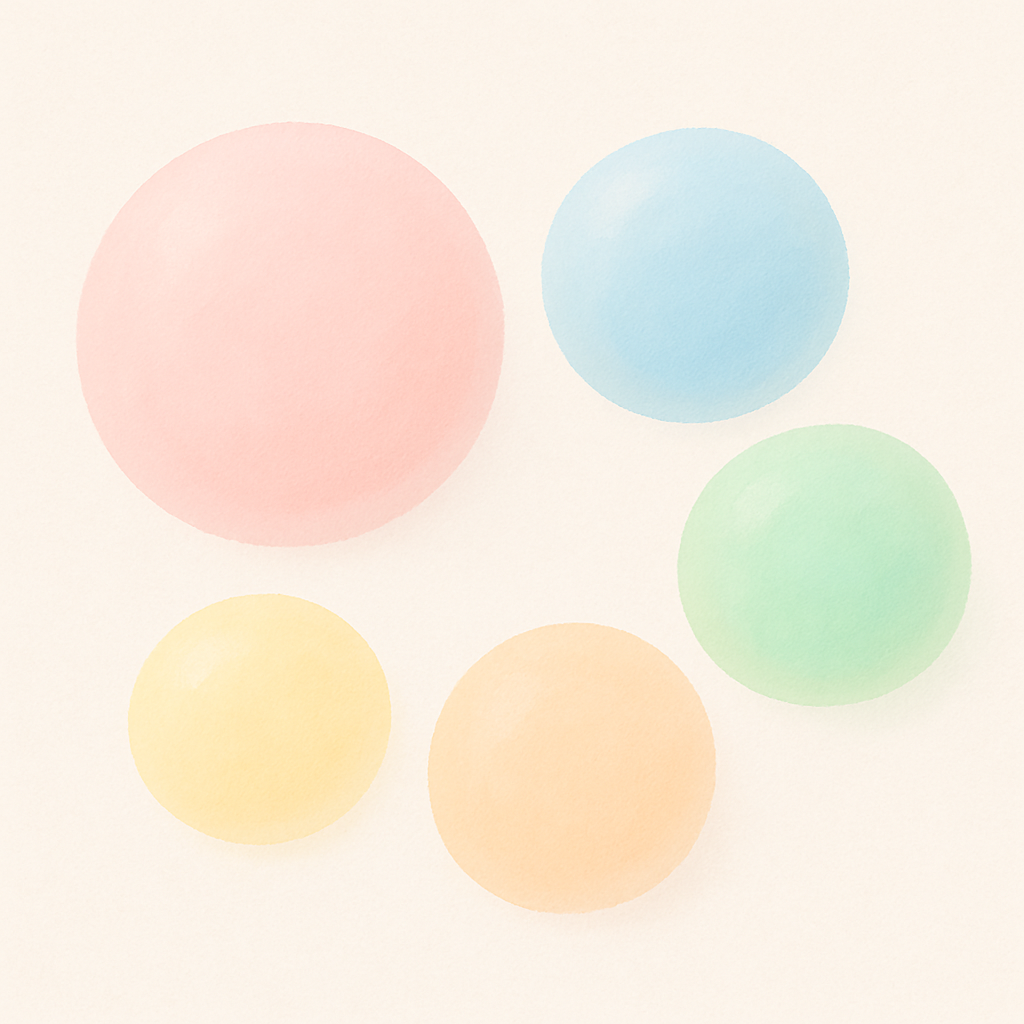


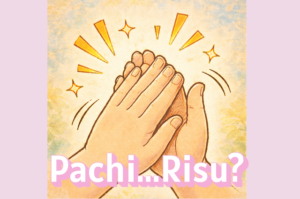

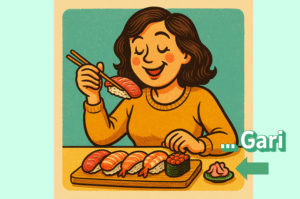
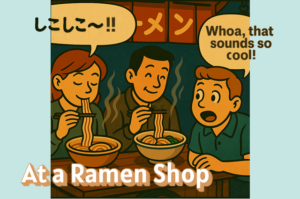
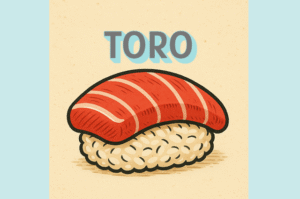
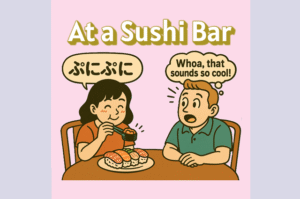

Comments